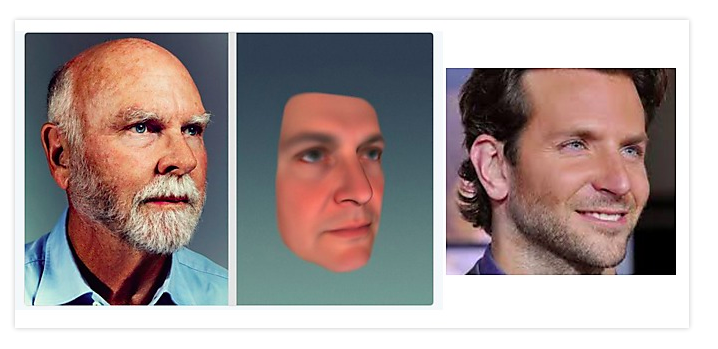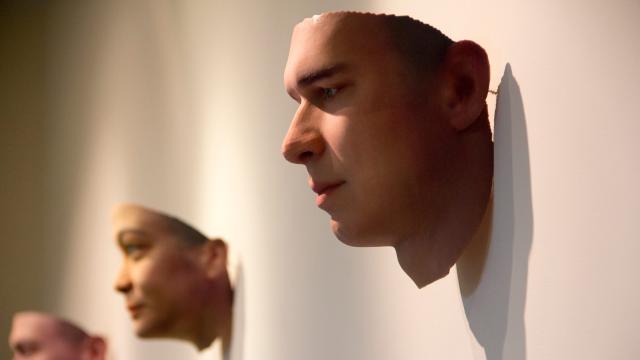In “Stranger Visions,” the artist Heather Dewey-Hagborg imagined what people might look like based on DNA collected from refuse like cigarette butts. Image: Heather Dewey-Hagborg
In 2012, the artist Heather Dewey-Hagborg exhibited a work that predicted a terrifying future: She extracted DNA from discarded hairs, gum and cigarette butts and used it to predict what those anonymous strangers might look like. The traces of ourselves that we are constantly leaving behind, she thought, could unleash an era of biological surveillance in which little more than a hair could reveal a person’s identity and location.
Last week, the biotech firm Human Longevity published a paper claiming that it can do just that. The paper has touched off an inter-science war.
Human Longevity, headed by renowned genomics expert J. Craig Venter, claimed that just by looking at your DNA, it can craft a fairly accurate model of your face. Human Longevity was working with better DNA evidence than one would likely find on a cigarette butt — using whole-genome sequencing, phenotyping and statistical modelling, the company looked at 1,061 people’s DNA. About 70 per cent of the time, they found that their algorithm could correctly identify the right person from a lineup of 20 photographs of an ethnically-mixed group.
Using genomic data, they predicted face shape, eye colour, hair colour and even what a person’s voice might sound like. The paper noted the potentially huge legal and ethical implications of the work. If someone could really determine what you look like from a DNA sample, it would mean that no DNA test would ever be truly private. Not to mention that police could pick someone out of a lineup using little more than a drop of blood.
Criticism of the paper was swift. Columbia scientist and chief scientific officer of the genealogy website MyHeritage.com Yaniv Erlich offered his own rebuttal, arguing that the paper used improper metrics and technique and “does not really identify anyone.” Erlich shot back that the prediction of his own face Venter tweeted looked more like Bradley Cooper.

Image: Screenshot via Yaniv Erlich
Others quickly piled on. Sceptics pointed out that it seemed like the method really relies on traits like race and sex to create pictures of average faces, something that could be done using far simpler DNA tests. Indeed, when used to pick a specific white European man out of a lineup of 20 other similar-looking men, it was right only 11 per cent of the time.
4/ For the record, I’m with @erlichya on this one. To show identification from DNA, you have to… you know, actually identify someone.
— Sten Linnarsson (@slinnarsson) September 12, 2017
The rebuttal paper inspired a rebuttal to the rebuttal from Venter, who claimed there were “no major flaws” in his work.
Looking at the images, it’s true that while the facial predictions bear resemblance to their owners, they don’t seem quite accurate enough to pick someone’s face out of a crowd.
What my genome predicts I would look like in my 20s. Genetics and the face https://t.co/q7sQsQSU6O by me & @Ananyo @piper_jason @JCVenter pic.twitter.com/4JrMOdVNou
— Natasha Loder (@natashaloder) September 7, 2017
But already, some companies are putting similar tools to work in the real world. A company called Parabon Nano-Labs has been working with police for years to help solve cases by predicting the physical appearance and ancestry of an unknown person via DNA. That technology, though, is little more than a high-tech version of the composite criminal suspect sketch.
Venter’s vision is likely inevitable. Certain observable characteristics, like eye colour, are called phenotypes, and phenotypes are largely determined by your DNA. The problem for now is that we haven’t quite figured how to read and translate all of that information. The science behind the technology will likely have to improve before you could really pick someone out of a crowd based on genes alone.
In the meantime, for now you probably don’t have to worry about a cigarette butt blowing your cover.
